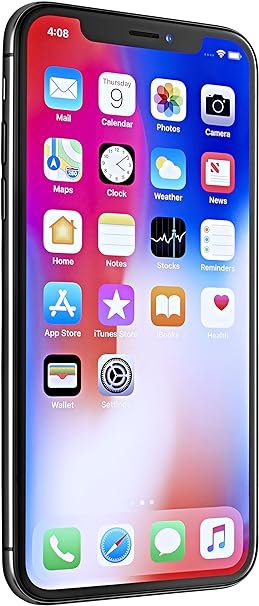Introduction:
Welcome to the Apple iPhone vs Samsung Galaxy Phone: Ultimate Guide! The smartphone market is dominated by two major players: Apple and Samsung. Both companies offer a wide range of smartphones with different features, specifications, and prices. Choosing between an iPhone and a Galaxy phone can be a daunting task, especially if you are not familiar with the differences between the two.
In this guide, we will compare the latest iPhone and Galaxy models side-by-side, so you can make an informed decision. We will discuss the design, screen, camera, battery life, performance, and other features of each phone. We will also compare the prices of each phone and provide you with a quick comparison chart.
Our guide will also provide you with reviews of the latest iPhones and Galaxy phones, so you can see what other users think about each phone. We will also provide you with tips on how to choose the right phone for your needs and budget.
By the end of this guide, you will have a better understanding of the differences between the iPhone and Galaxy phones and which one is the best for you.
Apple iPhone X, GSM Unlocked 5.8″, 256 GB – Space Gray
Apple iPhones: Review of iPhone – Polished Powerhouse or Overpriced Ecosystem?
Apple iPhones remain a dominant force in the smartphone market, lauded for their sleek design, seamless integration with Apple’s ecosystem, and powerful performance. But in 2024, are they still the undisputed kings, or are there cracks in the armor? Let’s dive into the pros and cons to help you decide.
Pros:
-
Premium design and build quality: iPhones are known for their luxurious feel and sturdy construction. The glass and metal bodies exude elegance, while the tight tolerances and water resistance ensure durability.
-
Top-notch performance: Apple’s A-series chips consistently rank among the fastest mobile processors, offering smooth multitasking, effortless gaming, and responsiveness that budget phones simply can’t match.
-
Fluid and intuitive iOS: iOS remains a user-friendly and polished operating system. Its clean interface, intuitive gestures, and consistent updates are a joy to use compared to some of the more cluttered Android interfaces.
-
Excellent camera system: iPhones consistently produce stunning photos and videos, with vibrant colors, sharp details, and impressive low-light performance. Features like Cinematic mode and ProRes video cater to creative users.
-
Tightly integrated ecosystem: Apple devices work seamlessly together, from AirDrop transfers to Handoff continuity. This creates a weird experience for those who live within the Apple bubble.
-
Regular software updates: iPhones receive timely software updates for several years, ensuring you have the latest security patches and features. This extends the longevity of your device compared to many Android phones.
Cons:
- High price tag: iPhones are undeniably expensive, often costing significantly more than comparable Android phones with similar specs. This can be a major barrier for budget-conscious buyers.
- Limited customization: iOS offers less customization compared to Android. You can’t change default apps, or launchers, or deeply tweak the interface, which might feel restrictive for power users.
- Closed ecosystem: While the tight integration is a pro for some, it can be a con for others. You’re locked into Apple’s services and accessories, limiting your choices and potentially increasing costs.
- Average battery life: While iPhones have improved in recent years, their battery life still lags behind some Android competitors. Power users might need to carry a charger for heavy usage.
- No expandable storage: iPhones lack expandable storage, meaning you’re stuck with the built-in capacity. This can be a pain point for users who store a lot of photos, videos, or apps.
- Limited port options: iPhones still use the proprietary Lightning port instead of the more universal USB-C. This means carrying additional cables and potentially facing compatibility issues with newer peripherals.
The Verdict:
Apple iPhones remain a compelling choice for those who prioritize design, performance, ease of use, and a tightly integrated ecosystem. However, the high price tag, limited customization, and closed ecosystem might deter some users. Ultimately, the decision comes down to your individual needs and budget. If you’re an Apple loyalist or value a premium, user-friendly experience, an iPhone is likely a good fit. But if you’re on a tight budget, prefer more customization, or are open to other platforms, exploring Android options might be worthwhile.
Remember, there’s no one-size-fits-all answer. Weigh the pros and cons carefully and choose the phone that best aligns with your priorities and preferences.
SAMSUNG Galaxy S23 Ultra Cell Phone, Unlocked Android Smartphone, 256GB, 200MP Camera, 
Samsung Galaxy Phones: A Stellar Spectacle or Overhyped Android?
Samsung Galaxy phones have long been Android royalty, known for their stunning displays, cutting-edge features, and powerful performance. But in 2024, do they still hold their throne, or are there cracks in the once-gleaming armor? Let’s delve into the pros and cons to help you decide if a Galaxy phone deserves a spot in your pocket.
Pros:
- Display Extravaganza: Samsung displays are arguably the best in the mobile world. From the vibrant AMOLED panels of the A-series to the foldable wonders of the Z Fold and Z Flip lines, Galaxy phones offer an immersive and eye-pleasing viewing experience, whether you’re gaming, watching videos, or just browsing the web.
- Innovation Hub: Samsung isn’t afraid to push boundaries. They pioneered foldable displays, introduced powerful S Pen styluses, and even dabbled in under-display cameras. While not all their experiments hit gold, their willingness to innovate keeps Galaxy phones exciting and future-proof.
- Camera Powerhouse: From the multi-lens setups of the S-series to the dedicated telephoto zoom of the Note line, Galaxy phones capture stunning photos and videos. Night photography, HDR processing, and AI-powered scene optimization ensure your memories are always crystal clear and vibrant.
- Performance Prowess: Samsung’s Exynos and Snapdragon processors consistently rank among the top performers in the mobile world. Whether you’re a power user juggling multiple apps or a hardcore gamer, Galaxy phones deliver smooth performance and snappy responsiveness.
- Android Advantage: Unlike iPhones, Galaxy phones offer extensive customization options. You can change the interface, install custom launchers, and tweak settings to your heart’s content. This flexibility makes Android a playground for tech enthusiasts who like to tinker and personalize their experience.
Cons:
- Pricey Playground: Flagship Galaxy phones often come with a hefty price tag, comparable to, or even exceeding, iPhones. This can be a major barrier for budget-conscious buyers who might find comparable specs in more affordable Android options.
- Software Stumbles: While Android offers greater customization, its software updates can be inconsistent, especially for older models. Waiting for the latest security patches or new features can be frustrating compared to Apple’s timely and consistent iOS updates.
- Bloatware Bonanza: Some Galaxy phones come pre-loaded with apps you might not want or use. While you can usually uninstall or disable them, this bloatware can be annoying and eat up valuable storage space.
- Battery Blues: While some Galaxy models like the S23 Ultra boast impressive battery life, others can fall short, especially power users who demand all-day performance. It’s crucial to research specific models to ensure their battery longevity meets your needs.
- Samsung Skin: Samsung’s One UI skin overlays Android, offering custom features and tweaks. While some users prefer it, others find it cluttered and prefer the cleaner, stock Android experience. Ultimately, it comes down to personal preference.
The Verdict:
Samsung Galaxy phones remain a compelling choice for users who prioritize stunning displays, cutting-edge features, and powerful performance. The variety of models within the Galaxy lineup caters to a range of budgets and needs, from the budget-friendly A-series to the foldable marvels of the Z series. However, the high price tag, bloatware, and inconsistent software updates might deter some users.
Ultimately, the decision comes down to your priorities and budget. If you’re an Android enthusiast who values innovation and customization, a Galaxy phone is likely a good fit. But if you prioritize simplicity, timely software updates, and a consistent user experience, you might find an iPhone or even a more affordable Android option more appealing.
Remember, there’s no one-size-fits-all answer. Weigh the pros and cons carefully and choose the phone that best aligns with your needs and preferences.
Apple iPhone 8 Plus 5.5″, 64 GB, Fully Unlocked, Silver
iPhone vs. Galaxy: Titans Clash in the Smartphone Arena
Choosing between an iPhone and a Samsung Galaxy phone is like picking between red and blue – both boast passionate followings and distinct strengths. While they share the throne of smartphone royalty, let’s dive into their unique offerings to help you conquer this tech-fueled duel.
Design and Display: iPhones exude minimalist elegance, with their sleek glass and metal bodies and notch-less screens. Galaxies, meanwhile, bring innovation, sporting foldable displays, and futuristic curves. For pure visual wow factor, Galaxies win, but iPhones still hold their own with a timeless sophistication.
Performance and Operating System: Both giants pack a punch with their powerhouse processors, ensuring smooth multitasking and buttery-smooth gaming. The real clash lies in software. iPhones excel in user-friendliness and seamless integration with the Apple ecosystem, while Galaxies offer wider customization options and access to the vast Android app store. For simplicity, iPhones reign, while power users may prefer the Android playground.
Cameras and Features: Apple’s computational photography magic often steals the show, producing vibrant and detailed photos. Galaxies, however, counter with their multi-lens setups and impressive zoom capabilities, catering to photography enthusiasts. On the features front, iPhones offer seamless AirDrop file sharing and convenient Face ID unlock, while Galaxies boast the versatility of the S Pen stylus and longer battery life. It’s a close call, with each excelling in specific areas.
Price and Value: iPhones carry a premium price tag, often costing significantly more than comparable Galaxy models. This makes Galaxies more budget-friendly, offering flagship-level specs at a lower cost. However, iPhones hold their value better and receive longer software updates, potentially evening out the cost over time.
The Verdict: Ultimately, the winner depends on your priorities. If you crave a luxurious, user-friendly experience and value a tightly integrated ecosystem, iPhones are your knight in shining armor. But if you’re a tech enthusiast who prioritizes customization, cutting-edge features, and affordability, Galaxies is your digital dragon to slay. Remember, there’s no wrong answer. Choose the phone that resonates with your tech desires and conquer the smartphone arena with confidence.
After comparing the latest iPhone and Galaxy models side-by-side, we found that both phones have their strengths and weaknesses. The iPhone is known for its sleek design, user-friendly interface, and high-quality camera. On the other hand, the Galaxy phone is known for its larger screen, longer battery life, and more affordable price.
Ultimately, the choice between an iPhone and a Galaxy phone comes down to personal preference. If you are looking for a phone with a great camera and user-friendly interface, the iPhone is the way to go. If you want a phone with a larger screen and longer battery life, the Galaxy phone is the better choice.





